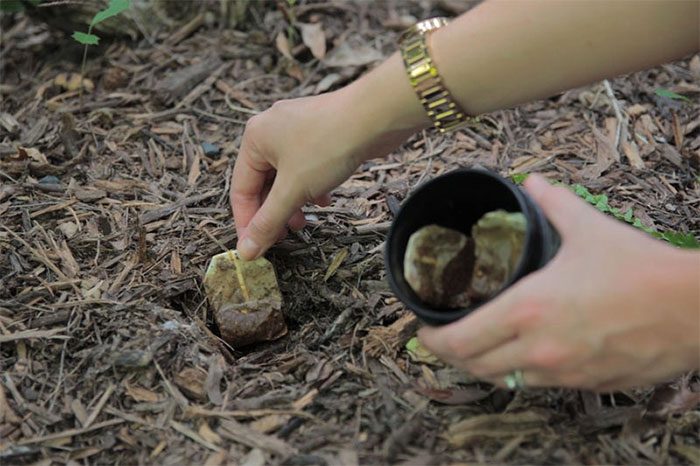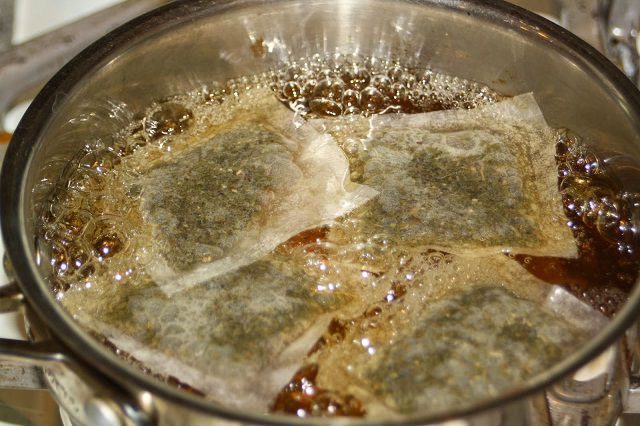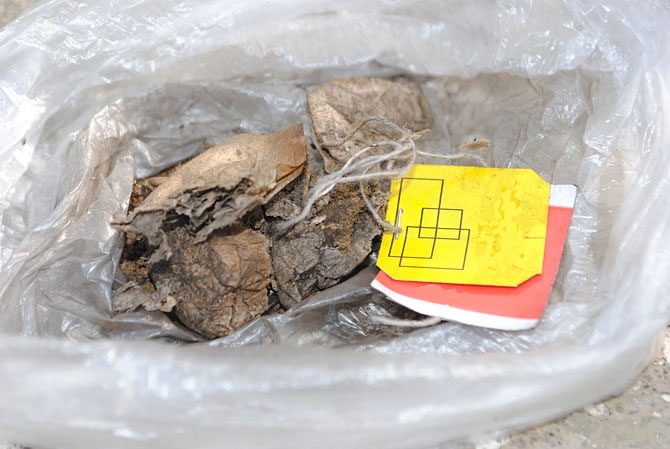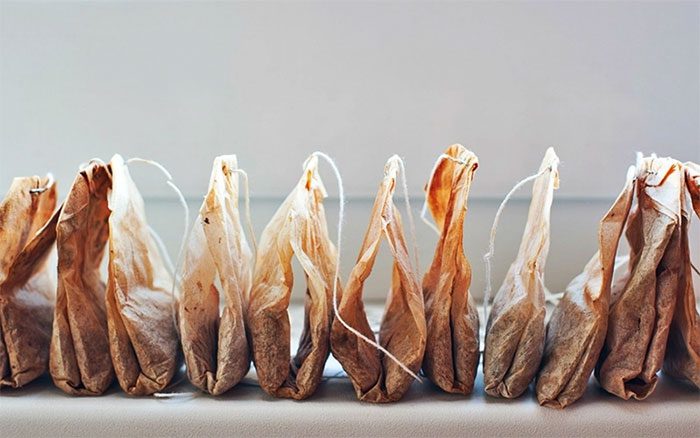Not only in rural areas but also in cities, many people are utilizing tea leaves effectively.
1. Compost for Plants
If you regularly drink tea, consider saving the used tea leaves to make compost. The organic fertilizer from tea leaves helps promote beneficial bacteria, making it excellent for plant fertilization. If you enjoy using tea bags, remember to remove the bags and just use the tea leaves for composting.

Organic fertilizer from tea leaves promotes beneficial bacteria for plants.
Tea contains nitrogen, which is an excellent fertilizer for plant leaves. Therefore, if you are a regular tea drinker, save the tea leaves and use them as a natural fertilizer, which is both economical and environmentally friendly.
Tea leaves are considered a very good organic fertilizer for plants. When watered, they improve soil structure, provide food for earthworms, and the fertilizer from tea leaves helps beneficial bacteria thrive, nourishing the plants to grow stronger every day. You can apply this to various vegetables, ornamental plants, and many other indoor plants.
2. Pest Prevention
To simplify home gardening, it’s essential to know how to prevent pests. Tea leaves offer an effective natural solution for this issue.

Mixing tea leaves with water provides a pest prevention solution.
With a little used tea leaves mixed with water, you have a safe and effective pest prevention remedy. This simple method can help keep those pesky insects away from your garden.
Furthermore, the compounds in tea can prevent mold and provide beneficial nutrients for your crops.
Utilize the tea bags to brew water for your plants, or spray it on the plants as an effective protective measure to deter pests. If you’re too lazy to brew, you can sprinkle the leaves on the plant leaves to provide essential nutrients.
3. Nourishing Plants
Sprinkle some used tea leaves around the bases of your garden vegetables. These tea leaves work by increasing the nitrogen concentration in the soil, improving the structure for vegetable planting.
Sprinkling tea leaves around the base also creates a conducive environment for earthworms to thrive. The growth of earthworms will help aerate your vegetable garden soil, making it easier for plant roots to absorb nutrients.
Thus, with tea leaves, you can be assured that the plants in your garden will flourish. Tea leaves contain many beneficial minerals for plants.
4. Fertilizing Acid-Loving Vegetables

For acid-loving vegetables, mix tea leaves with fertilizer before applying.
In some areas with acidic soil, only certain types of vegetables can be grown. However, using tea leaves makes home gardening much simpler.
Before fertilizing your plants, mix tea leaves into the fertilizer; this will help reduce the soil’s pH. Additionally, it provides extra nutrients and essential minerals for plant growth.
Because these plants prefer acidic soil, you won’t need to spend time modifying the soil for them.
5. Accelerating Composting
Many gardeners prefer to make their organic compost for watering their vegetables at home; however, the composting process can often take longer than needed for nutrient supply.
For this reason, do not hesitate to add tea leaves to your compost bins.

Adding tea leaves to compost bins accelerates the composting process.
First, mix the tea leaves with water, then add both the water and the leaves to the compost you are fermenting. The high nitrogen content in tea speeds up the breakdown of organic compounds in the compost bin.
6. A Natural Fertilizer Source for Vegetables
When growing vegetables at home, you can add tea leaves to the water used for watering instead of just using plain water. This method will not only ensure your vegetable garden receives adequate water but will also supplement essential minerals and nutrients necessary for vegetable growth.



















































